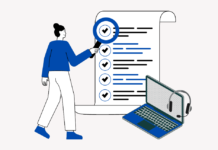Introduction to Enterprise Resource Planning (ERP) Software
In today’s fast-paced business environment, Enterprise Resource Planning (ERP) software company is a crucial tool that enables organizations to integrate and manage their core business processes efficiently. ERP solutions help businesses optimize operations, improve productivity, and enhance decision-making by consolidating various functions into a single, unified system.
Key Features of ERP Software
A high-quality ERP software provides an extensive set of features that facilitate seamless business operations. The essential features include:
1. Centralized Data Management
ERP systems unify data from multiple departments, ensuring consistency and eliminating redundancy. With a centralized database, companies can maintain accurate records and prevent data silos.
2. Real-Time Analytics and Reporting
With integrated analytics, businesses can gain valuable insights into their operations, track performance, and make informed decisions. ERP reporting tools offer real-time data visualization, helping organizations stay ahead of market trends.
3. Finance and Accounting Integration
An effective ERP system includes financial management tools that handle budgeting, accounts payable/receivable, tax compliance, and financial forecasting, ensuring accuracy and regulatory compliance.
4. Inventory and Supply Chain Management
ERP software helps businesses optimize inventory control and supply chain logistics, reducing waste and ensuring a smooth production flow. Automated inventory tracking minimizes human errors and improves order fulfillment.
5. Customer Relationship Management (CRM)
A built-in CRM module helps businesses manage customer interactions, track sales pipelines, and enhance customer satisfaction through personalized services and automated communication.
6. Human Resource Management (HRM)
ERP solutions offer HRM functionalities, such as employee records management, payroll processing, performance tracking, and recruitment automation.
Benefits of Implementing ERP Software
1. Enhanced Productivity and Efficiency
By automating repetitive tasks and streamlining workflows, ERP systems significantly boost productivity and reduce operational costs.
2. Improved Data Security and Compliance
ERP software provides advanced security protocols to protect sensitive business information, ensuring compliance with industry regulations.
3. Scalability for Business Growth
Modern ERP solutions are highly scalable, allowing businesses to expand their operations without the need for extensive system overhauls.
4. Better Decision-Making
With real-time insights and data-driven analytics, businesses can make informed decisions, improving overall performance and profitability.
Top Industries Using ERP Software
1. Manufacturing
ERP helps manufacturers streamline production planning, inventory management, and quality control to enhance efficiency.
2. Retail and E-commerce
Retailers leverage ERP for inventory tracking, customer management, and sales forecasting to improve customer experiences.
3. Healthcare
Hospitals and clinics use ERP to manage patient records, billing, and compliance efficiently.
4. Financial Services
Banks and financial institutions implement ERP for risk management, financial reporting, and fraud detection.
5. Construction and Engineering
Construction firms use ERP for project management, resource allocation, and compliance tracking.
Choosing the Right ERP Software Company
1. Understanding Business Requirements
Before selecting an ERP provider, businesses must analyze their specific needs to find a solution that aligns with their operational goals.
2. Evaluating Customization and Integration Capabilities
A flexible ERP system should offer customization options and integrate seamlessly with existing business applications.
3. Checking Vendor Reputation and Support Services
Businesses should research ERP vendors, read customer reviews, and evaluate their customer support services for long-term reliability.
4. Considering Cloud vs. On-Premises Solutions
Cloud-based ERP solutions offer greater flexibility and lower upfront costs, whereas on-premises ERP provides more control over data and security.
ERP Software Trends in 2024
1. AI and Machine Learning Integration
ERP software is increasingly incorporating AI and machine learning to enhance automation and predictive analytics.
2. Mobile ERP Applications
With the rise of remote work, mobile ERP apps enable on-the-go access to business data and functionalities.
3. IoT and Blockchain Integration
IoT-enabled ERP improves supply chain visibility, while blockchain technology enhances data security and transparency.
4. Subscription-Based Pricing Models
Many ERP vendors are offering SaaS (Software-as-a-Service) pricing models, making ERP solutions more accessible to small businesses.
Conclusion
Investing in Enterprise Resource Planning (ERP) software is a strategic move for any business looking to streamline operations, improve efficiency, and drive growth. By choosing the right ERP system, companies can gain a competitive edge and enhance their business performance.












